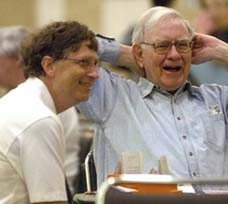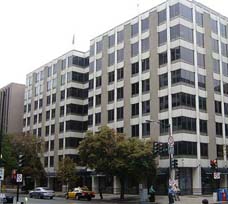2006.06.05: June 5, 2006: Headlines: COS - Lesotho: Engineering: Solar Power: Web Wire: Matthew Orosz, a former Peace Corps volunteer in Lesotho, was inspired to build a prototype solar generator when he observed a massive parabolic trough that "perfectly baked" 10 loaves of bread at a time for one community there
Peace Corps Online:
Peace Corps News:
Library:
Peace Corps: Engineering:
Peace Corps Engineering: Newest Stories:
2006.06.05: June 5, 2006: Headlines: COS - Lesotho: Engineering: Solar Power: Web Wire: Matthew Orosz, a former Peace Corps volunteer in Lesotho, was inspired to build a prototype solar generator when he observed a massive parabolic trough that "perfectly baked" 10 loaves of bread at a time for one community there
Matthew Orosz, a former Peace Corps volunteer in Lesotho, was inspired to build a prototype solar generator when he observed a massive parabolic trough that "perfectly baked" 10 loaves of bread at a time for one community there

As Orosz explained it, the system, known as an organic Rankine cycle (ORC), works by concentrating solar thermal energy to heat a fluid refrigerant to boiling. The typical ORC is a massive affair, but in the MIT micro-version, the systemís vapor is expanded through a rotary vane turbine (a car power-steering pump) that makes mechanical energy to spin a generator (a car alternator). Concentration of the solar energy is achieved via an array of parabolic mirrors that electromechanically track the sun daily and focus its energy on an absorber tube that exchanges heat with the ORC, he said. The latest prototype of the MIT system, built in Lesotho in January, is "sized to produce about 1 kilowatt of electricity, with about 10 kilowatts of heat recovered as hot water," Orosz said.
Matthew Orosz, a former Peace Corps volunteer in Lesotho, was inspired to build a prototype solar generator when he observed a massive parabolic trough that "perfectly baked" 10 loaves of bread at a time for one community there
Students win grant for Lesotho solar generator
Massachusetts Institute of Technology (MIT)
June 5, 2006
Caption: A solar generator in Australia
Two MIT graduate students in civil and environmental engineering have won a 2006 World Bank Development Marketplace grant to develop a solar micro-generator that would provide affordable energy to Lesotho, a mountainous African country where just 10 percent of the population has electricity and almost 30 percent of adults are living with HIV/AIDS.
The students, Matthew Orosz and Amy Mueller, received just over $100,000 for their project, one of 30 the World Bank funded this year in the competitive Development Marketplace (DM) grant program. More than 2,500 teams sought DM funding for projects on this yearís theme, "Innovations in Water, Sanitation and Energy Services for Poor People."
The pioneering MIT technology combines solar thermal power with a microscale generator that is built and repaired with ordinary auto parts. The MIT teamís goal is to provide not only energy but also support for the local economy through manufacturing the generator in Lesotho, a nation about the size of Maryland.
A hot idea
Orosz, a former Peace Corps volunteer in Lesotho, was inspired to build the first iteration of the MIT generator when he observed a massive parabolic trough that "perfectly baked" 10 loaves of bread at a time for one community there.
He burned his hand on the trough, built by the Bethel Business and Community Development Center (BBCDC), now the teamís partner in Lesotho, and "figured the heat was high grade enough to try mechanical conversion," he said.
As Orosz explained it, the system, known as an organic Rankine cycle (ORC), works by concentrating solar thermal energy to heat a fluid refrigerant to boiling. The typical ORC is a massive affair, but in the MIT micro-version, the systemís vapor is expanded through a rotary vane turbine (a car power-steering pump) that makes mechanical energy to spin a generator (a car alternator).
Concentration of the solar energy is achieved via an array of parabolic mirrors that electromechanically track the sun daily and focus its energy on an absorber tube that exchanges heat with the ORC, he said.
The latest prototype of the MIT system, built in Lesotho in January, is "sized to produce about 1 kilowatt of electricity, with about 10 kilowatts of heat recovered as hot water," Orosz said.
In Western terms, those are micro-amounts, sufficient to cover only a fraction of the energy consumed in a typical U.S. home. But in Lesotho, a kilowatt of electricity and additional hot water could transform lives now marooned by poverty, team members said.
Bringing affordable electricity and hot water into communities in Lesotho could "save women time they normally spend collecting fuel so they can heat water to take a bath, or power a TV so a village can watch their favorite soccer match. It could enable students to study at night in a lit school, or enable a seamstress to set up a local business with a couple of sewing machines," Orosz said.
Local partners
The micro-generator team -- known as the Solar Turbine Group -- has already worked in Lesotho with BBCDC and local engineering students. Mueller, who joined the team this year, went to Lesotho in January with Orosz and team member Perry Hung, a sophomore in electrical engineering and computer science. Mueller and Orosz will return there for nine months in September, with team member Elizabeth Wayman (S.M. í06).
The World Bank grant will support their trip and the work of taking the project from prototype to functioning generator for a Lesotho school or clinic. The project will include the training of Lesotho residents in how to operate and repair the generator.
Muellerís first trip to Lesothoís barren mountains convinced her that the MIT project is about "so much more than technology. As engineers, weíre all excited about making things work. Once I was on the ground, the social and economic components were really brought home: All of the trees have been cut down and burned to heat water or cook food. People are in desperate need of an energy source other than brushwood," she said.
Yet technology does play a crucial role, according to Mueller. She believes it is useful to learn high-tech methods, then "scale back and find a simpler, less expensive way to tackle the same problems. It is also important to realize there are still places where one person can make a difference," she said.
MIT support
For Orosz and Mueller, one person has already made a difference in their lives and the life of their energy innovation. Their advisor, Harold Hemond, the William E. Leonhard Professor of Civil and Environmental Engineering, provided "insightful suggestions along the way and trusted us to strike the right balance between our graduate research and our commitment to making this project a reality," Orosz said.
Initially incubated in MITís D-Lab class taught by Amy Smith, an instructor in the Edgerton Center, the MIT solar micro-generator won numerous awards before receiving the World Bank grant. The team (then known as Parabolic Power) won two consecutive MIT IDEAS competitions, and MITís Public Service Center has twice funded team membersí work in Lesotho.
In 2006, Orosz received a Carol Wilson Award to advance the project and team members Sorin Grama, a graduate student in system design and management, and MIT affiliate Ignacio Aguirrer represented the team at the Massachusetts Ignite Clean Energy Competition, winning a third prize.
When this story was posted in August 2006, this was on the front page of PCOL:





Peace Corps Online The Independent News Forum serving Returned Peace Corps Volunteers
 | Peace Corps' Screening and Medical Clearance
The purpose of Peace Corps' screening and medical clearance process is to ensure safe accommodation for applicants and minimize undue risk exposure for volunteers to allow PCVS to complete their service without compromising their entry health status. To further these goals, PCOL has obtained a copy of the Peace Corps Screening Guidelines Manual through the Freedom of Information Act (FOIA) and has posted it in the "Peace Corps Library." Applicants and Medical Professionals (especially those who have already served as volunteers) are urged to review the guidelines and leave their comments and suggestions. Then read the story of one RPCV's journey through medical screening and his suggestions for changes to the process. |
 | Gates charity races to spend billions
Warren E. Buffettís gift of $31 billion to the Bill and Melinda Gates Foundation means that for tax reasons, starting in 2009, the foundation must distribute $3 billion annually, or a little more than twice what it distributed last year.
PCOL Comment: The Foundation says that "preventing the spread of HIV is the most durable long-term solution to the AIDS epidemic, and a top priority for the foundation." Peace Corps Volunteers and Returned Volunteers have been doing just that in AIDS Education for the past 15 years. Why not consider a $100M annual contribution to the Peace Corps to put 2,500 additional volunteers in the field to expand AIDS education worldwide? |
 | The Peace Corps is "fashionable" again
The LA Times says that "the Peace Corps is booming again and "It's hard to know exactly what's behind the resurgence." PCOL Comment: Since the founding of the Peace Corps 45 years ago, Americans have answered Kennedy's call: "Ask not what your country can do for you--ask what you can do for your country. My fellow citizens of the world: ask not what America will do for you, but what together we can do for the freedom of man." Over 182,000 have served. Another 200,000 have applied and been unable to serve because of lack of Congressional funding. The Peace Corps has never gone out of fashion. It's Congress that hasn't been keeping pace. |
 | Changing the Face of Hunger
In his new book, Former Congressman Tony Hall (RPCV Thailand) says humanitarian aid is the most potent weapon the United States can deploy against terrorism. An evangelical Christian, he is a big believer in faith-based organizations in the fight against hunger. Members of Congress have recently recommended that Hall be appointed special envoy to Sudan to focus on ending the genocide in Darfur. |
 | PC will not return to East Timor in 2006
Volunteers serving in East Timor have safely left the country as a result of the recent civil unrest and government instability. Latest: The Peace Corps has informed us that at this time, the Peace Corps has no plans to re-enter the country in 2006. The Peace Corps recently sent a letter offering eligible volunteers the opportunity to reinstate their service in another country. |
 | Chris Dodd considers run for the White House
Senator Chris Dodd plans to spend the next six to eight months raising money and reaching out to Democrats around the country to gauge his viability as a candidate. Just how far Dodd can go depends largely on his ability to reach Democrats looking for an alternative to Hillary Clinton. PCOL Comment: Dodd served as a Volunteer in the Dominican Republic and has been one of the strongest supporters of the Peace Corps in Congress. |
 | Vasquez testifies before Senate Committee
Director Vasquez testifies before the Senate Foreign Relations Committee on his nomination as the new Representative to the United Nations Agencies for Food and Agriculture replacing Tony Hall. He has been the third longest serving Peace Corps Director after Loret Ruppe Miller and Sargent Shriver. PCOL Comment: Read our thanks to Director Vasquez for his service to the Peace Corps. |
 | Peace Corps stonewalls on FOIA request
The Ashland Daily Tidings reports that Peace Corps has blocked their request for information on the Volkart case. "After the Tidings requested information pertaining to why Volkart was denied the position ó on March 2 ó the newspaper received a letter from the Peace Corps FOIA officer stating the requested information was protected under an exemption of the act." The Dayton Daily News had similar problems with FOIA requests for their award winning series on Volunteer Safety and Security. |
 | PCOL readership increases 100%
Monthly readership on "Peace Corps Online" has increased in the past twelve months to 350,000 visitors - over eleven thousand every day - a 100% increase since this time last year. Thanks again, RPCVs and Friends of the Peace Corps, for making PCOL your source of information for the Peace Corps community. And thanks for supporting the Peace Corps Library and History of the Peace Corps. Stay tuned, the best is yet to come. |
 | History of the Peace Corps
PCOL is proud to announce that Phase One of the "History of the Peace Corps" is now available online. This installment includes over 5,000 pages of primary source documents from the archives of the Peace Corps including every issue of "Peace Corps News," "Peace Corps Times," "Peace Corps Volunteer," "Action Update," and every annual report of the Peace Corps to Congress since 1961. "Ask Not" is an ongoing project. Read how you can help. |
 | RPCV admits to abuse while in Peace Corps
Timothy Ronald Obert has pleaded guilty to sexually abusing a minor in Costa Rica while serving there as a Peace Corps volunteer. "The Peace Corps has a zero tolerance policy for misconduct that violates the law or standards of conduct established by the Peace Corps," said Peace Corps Director Gaddi H. Vasquez. Could inadequate screening have been partly to blame? Mr. Obert's resume, which he had submitted to the Peace Corps in support of his application to become a Peace Corps Volunteer, showed that he had repeatedly sought and obtained positions working with underprivileged children. Read what RPCVs have to say about this case. |
 | Why blurring the lines puts PCVs in danger
When the National Call to Service legislation was amended to include Peace Corps in December of 2002, this country had not yet invaded Iraq and was not in prolonged military engagement in the Middle East, as it is now. Read the story of how one volunteer spent three years in captivity from 1976 to 1980 as the hostage of a insurrection group in Colombia in Joanne Marie Roll's op-ed on why this legislation may put soldier/PCVs in the same kind of danger. Latest: Read the ongoing dialog on the subject. |
Read the stories and leave your comments.

Some postings on Peace Corps Online are provided to the individual members of this group without permission of the copyright owner for the non-profit purposes of criticism, comment, education, scholarship, and research under the "Fair Use" provisions of U.S. Government copyright laws and they may not be distributed further without permission of the copyright owner. Peace Corps Online does not vouch for the accuracy of the content of the postings, which is the sole responsibility of the copyright holder.
Story Source: Web Wire
This story has been posted in the following forums: : Headlines; COS - Lesotho; Engineering; Solar Power
PCOL33064
97

























